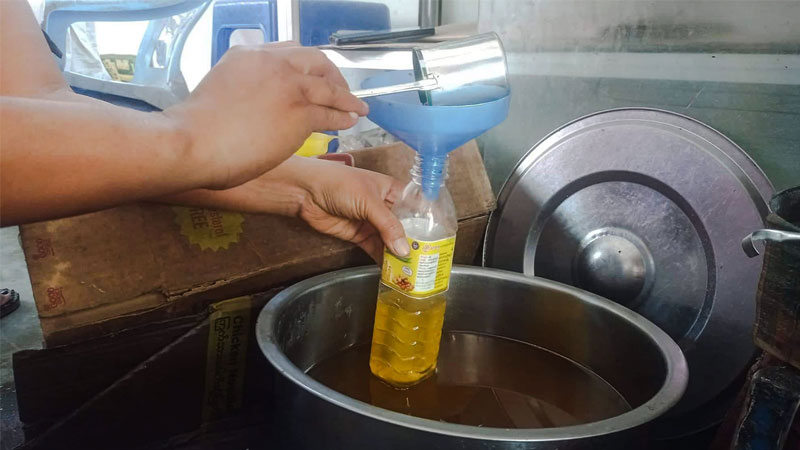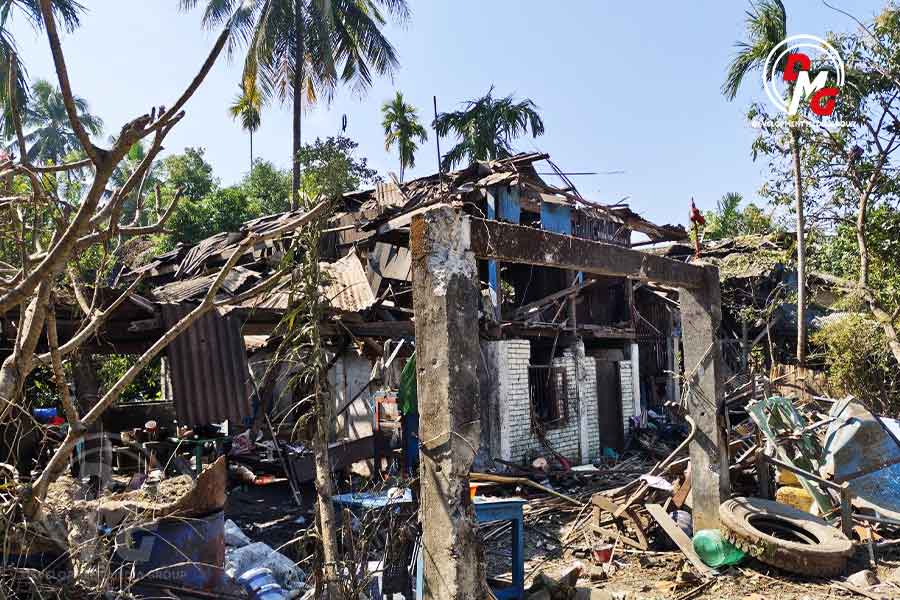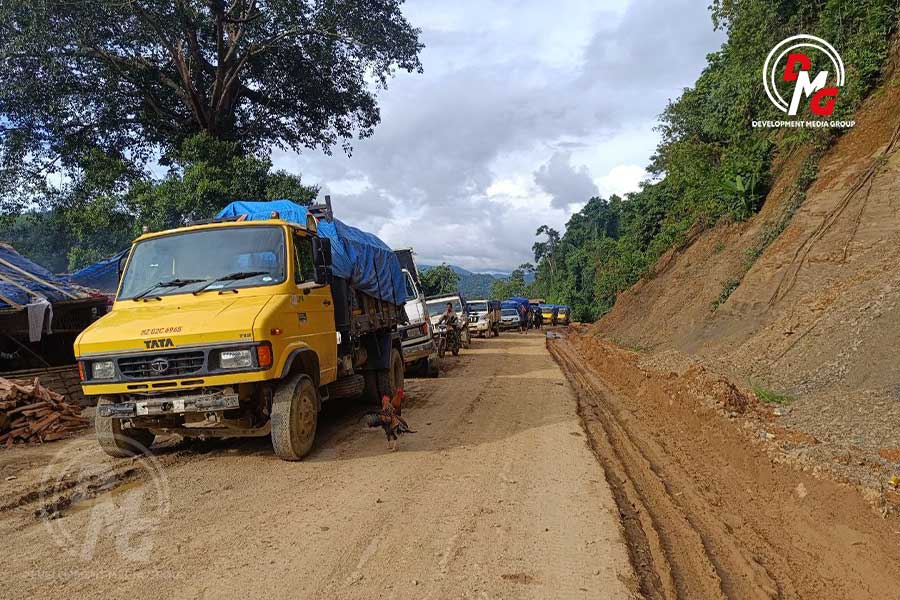- Two civilians killed, two injured in junta airstrike on Ramree village
- Bo Nagar’s defection raises security fears for resistance forces in Myanmar’s heartland
- Weekly Highlights from Arakan State (Feb 2 to 8, 2026)
- Freedom of expression curtailed in resistance-controlled areas, report finds
- Conflict leaves Arakan’s historic pagodas in ruins as restoration stalls
Commerce Ministry warns against palm oil price gouging, hoarding as main supplier Indonesia halts exports
The Consumer Affairs Department of the military regime’s Commerce Ministry has threatened legal action against palm oil distributors who unfairly increase prices or keep large stockpiles for the purpose of speculating on the edible oil market.
26 Apr 2022

DMG Newsroom
26 April, 2022, Sittwe
The Consumer Affairs Department of the military regime’s Commerce Ministry has threatened legal action against palm oil distributors who unfairly increase prices or keep large stockpiles for the purpose of speculating on the edible oil market.
Consumers can file complaints with the supervisory committee for import and distribution of edible oil if such cases arise, said U Myint Cho, deputy director general of the Consumer Affairs Department.
“I urge customers not to buy if prices are above normal. And they can also file complaints with the committee, which is led by me,” said U Myint Cho. “Don’t engage in panic buying. We have sufficient stocks.”
The price of palm oil has increased after Indonesia, Myanmar’s biggest palm oil supplier, last week announced a ban on exports until further notice, in a move meant to tackle rising domestic prices in the fellow Southeast Asian nation.
U Myint Cho said action will be taken against speculators under the Important Goods and Services Act, which lists edible oil as an important commodity for Myanmar.
“We have imported palm oil from Indonesia because the price is cheaper, but we can also import it from Malaysia. And we have some 30,000 tonnes of palm oil stored in tanks. And private companies import around 50,000 tonnes of oil. So, an edible oil shortage is unlikely in our country,” said U Myint Cho.
Indonesia supplies 96 percent of Myanmar’s palm oil imports, and Myanmar can only produce some 300,000 tonnes of edible oil domestically, according to the Commerce Ministry.
An edible oil distributor from Arakan State who asked for anonymity said distributors like himself are having difficulties buying palm oil from Yangon.
“Authorities have said they have sufficient stocks of edible oil. However, it is difficult to buy it in the market. While the government says it has edible oil stocks, we can’t buy it in the market, and prices have therefore only increased,” he said.
Arakan (Rakhine) State does not import palm oil directly from foreign countries, but rather buys from wholesalers in Yangon based on local demand, said U Tin Aung Oo, chairman of the Rakhine State Chamber of Commerce and Industry.
“We’ve heard that suppliers can’t meet the orders. In a market economy, prices will increase if the supply is low. But we will collaborate with the relevant departments to prevent prices from soaring unreasonably,” he said.
There are currently 59 companies in Myanmar that import palm oil, and among them are subsidiaries of the military-controlled Myanmar Economic Holdings Ltd. conglomerate.
















.jpg)
